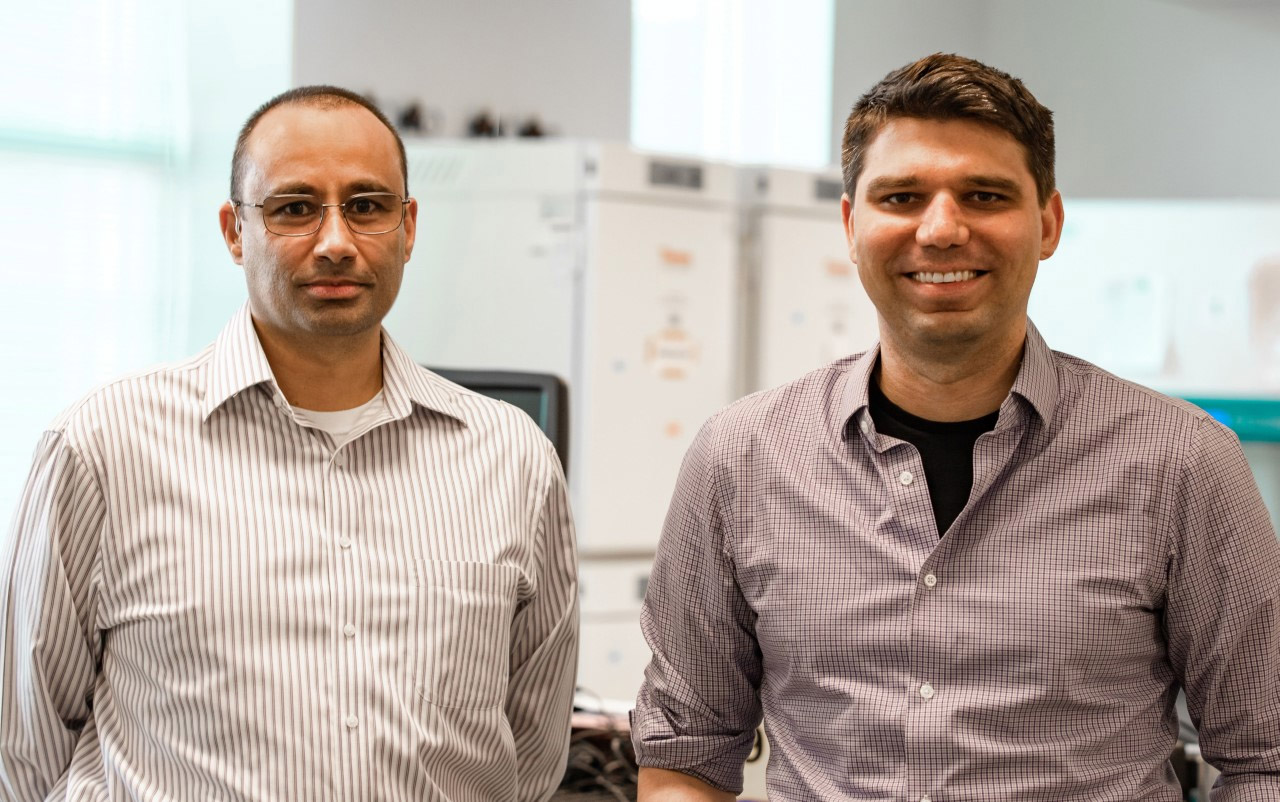Bioengineering professors receive $4.8M to develop gene therapy for ALS
The NIH National Institute of Neurological Disorders and Stroke (NINDS) awarded University of Illinois bioengineering professors Thomas Gaj (BSD) and Pablo Perez-Pinera (ACPP) a five-year, approximately $4.8 million translational research grant to develop an optimized gene therapy for amyotrophic lateral sclerosis (ALS), a severely debilitating and fatal neurological disorder.

ALS, which is diagnosed in 5,000 new patients each year, is characterized by progressive weakening of muscles due to the loss of motor neurons in the brain and spinal cord which eventually leads to paralysis and death. Mutations in the protein superoxide dismutase 1 (SOD1) are frequently found in inherited forms of the disease. Researchers currently believe that mutations in SOD1 render this protein toxic for neurons, triggering the development of the disease and its progression.
To this end, Gaj and Perez-Pinera have demonstrated that gene-editing technologies such as CRISPR can be used to lower the production of the toxic SOD1 protein. Most recently, the Illinois team established that CRISPR base editors, a technology capable of editing DNA in a potentially safer and more predictable way than traditional CRISPR platforms, could be delivered to the spinal cord to permanently inactivate the mutant SOD1 protein. These results were previously published in the journal Molecular Therapy.
The new grant will allow the Illinois team to refine the safety and efficacy of CRISPR base-editing technology to target SOD1. “ALS is a devastating disorder with very few effective treatment options. Through this project, we hope to produce a safe and effective therapeutic that could meaningfully impact the lives of patients afflicted with the disorder”, said Gaj, a professor of bioengineering at Illinois.
The work that will be performed by the Illinois team can also impact patients with other diseases. “This is a novel and powerful gene-therapy based genome-editing treatment approach with broad implications for neurotherapeutics and may potentially be applicable to a range of diseases,” said Chris Boshoff, Ph.D., program director at NINDS.
“Like many other gene editing tools, CRISPR base-editors can be easily repurposed to modify different DNA sequences. Many of the technologies and protocols resulting from this research will be directly applicable to many other genetic diseases, particularly those affecting the central nervous system” said Perez-Pinera, a professor of bioengineering at Illinois.
The work will be supported by the NINDS Cooperative Research to Enable and Advance Translational Enterprises for Biotechnology Products and Biologics (CREATE Bio) program (NS122102-01A1), which is dedicated to helping translate to the clinic biotechnology- and biologic-based therapies that have demonstrated significant promise in initial proof-of-concept studies.
